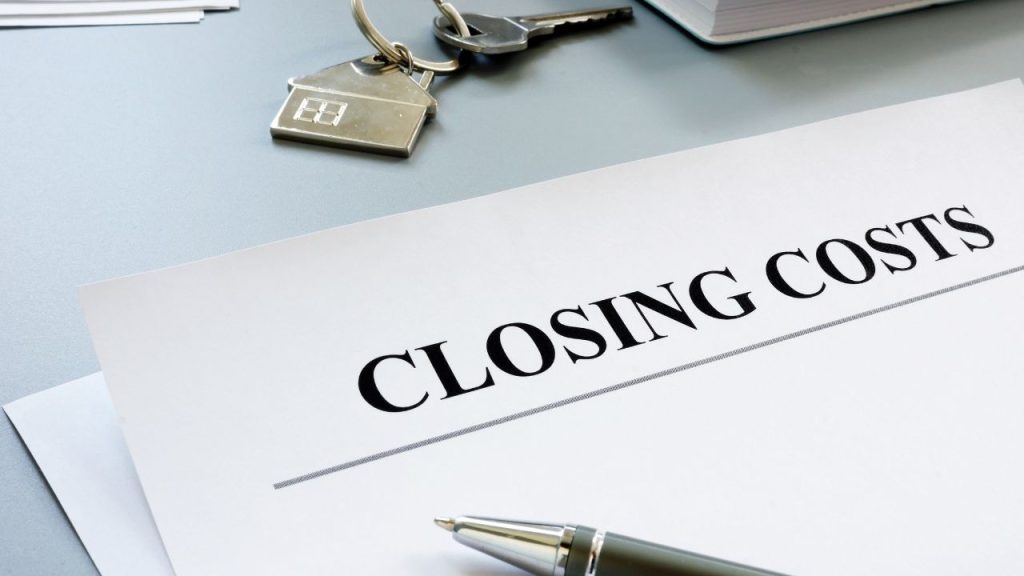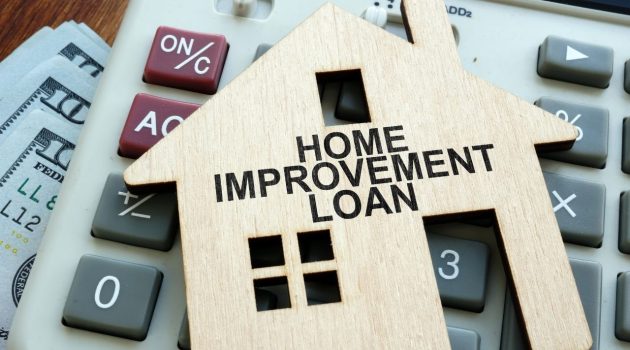Buying a house is a significant investment, and having a strong financial foundation can make the process smoother and more enjoyable.
Improving your finances before embarking on this journey will help you secure better loan terms and give you the peace of mind to choose the home of your dreams confidently.
Here are some tips to strengthen your financial position before taking the plunge into homeownership.
1. Understanding Your Current Financial Standing

Before you think about buying a house, it’s crucial to have a clear understanding of your current financial standing.
Importance of a Good Credit Score
Your credit score plays a significant role in determining the mortgage rates and terms you’ll be offered.
A higher credit score will often result in better mortgage rates, which, in turn, will save you thousands of dollars over the life of your loan.
Here are a few important factors that impact your credit score:
- Payment history: Making consistent on-time payments is crucial to maintaining a good credit score.
- Outstanding debt: Reducing your balances and keeping them low will positively impact your credit score.
- Credit history length: A longer credit history typically leads to a higher credit score.
Obtaining your credit report from the three main credit bureaus: Experian, Equifax, and TransUnion is a good idea.
Review your credit reports for accuracy and dispute any errors to ensure your credit score accurately reflects your financial history.
Reducing Your Debt
Before buying a home, reducing your debt as much as possible is important. High levels of debt could impact your ability to secure a mortgage or lead to higher interest rates.
Consider the following strategies to reduce your debt:
- Consolidate: Combining your debt into a single, lower interest rate loan can save you money in the long run.
- Pay off high-interest debt first: Pay off your credit cards and other high-interest loans before tackling lower-interest debt.
- Set up a budget: Develop a budget that prioritizes debt repayment, and stick to it to ensure you’re making consistent progress.
Reducing your debt will improve your credit score and make securing a mortgage at a favorable interest rate easier.
Increasing Your Income
Higher income can help you qualify for a better mortgage and make saving for a down payment easier. Here are a few suggestions for enhancing your income:
- Negotiate a raise: If you’ve been in your current job for a while and are performing well, consider asking for a raise.
- Take on a side job: Think about freelance, part-time, or contract work that complements your skill set and aligns with your schedule.
- Invest in yourself: Pursue education or training opportunities that could lead to a better-paying position in your field.
Increasing your income helps you qualify for a better mortgage and allows for more financial flexibility when saving and budgeting for your new home.
2. Saving for a Down Payment

Creating a Savings Plan
To improve your finances before buying a house, it’s essential to prepare for a down payment. Start by creating a savings plan to meet this goal.
First, determine the amount you need to save for a down payment. Generally, putting down 20% of the home’s purchase price is recommended.
Next, establish a monthly savings target by dividing your down payment amount by the months you plan to save.
For example, if you need to save $40,000 for a down payment and plan to save for four years (48 months), your monthly savings target would be $833.
To help achieve your savings target, create a budget that accounts for your expenses.
Identify areas where you can cut costs or increase your income, allocating the extra money towards your down payment fund.
Selecting the Right Savings Account
Once you have a clear savings plan, choosing the right type of savings account is important to maximize your efforts.
A high-yield savings account is an excellent option because it offers higher interest rates compared to traditional savings accounts. This means your money will grow faster, reaching your goal sooner.
When selecting a high-yield savings account, compare different financial institutions’ interest rates, fees, and minimum balance requirements.
Online banks often offer higher rates than brick-and-mortar counterparts, so consider opening an account with an online bank.
You can also try using a credit union for personal banking solutions, which can provide better savings rates, lower fees, and personalized customer service.
Remember, saving for a down payment is crucial in improving your finances before buying a house. With a solid savings plan and the right savings account, you’ll be well on your way to homeownership.
3. Anticipating Additional Costs

Understanding Closing Costs
When preparing to buy a house, it’s important to anticipate additional costs that come with closing the deal.
Closing costs typically range from 2% to 5% of the purchase price and can include various fees. Some of these fees are:
- Loan origination fees: Charged by the lender for processing your mortgage application.
- Appraisal fees: Paid to a professional appraiser who assesses the property’s value.
- Title insurance: Protects you and the lender in case there are ownership claims on the property in the future.
- Home inspections: Evaluate the house’s condition and identify potential issues that might need repairs.
- Property taxes: Paid to the local government for providing community services.
Remember that your mortgage payment includes the principal amount, interest rate, property taxes, and homeowners insurance.
Make sure to factor these costs into your overall budget, as they can significantly impact your finances.
Preparing for Maintenance and Repair Costs
Owning a home also comes with the responsibility of maintaining and repairing your property. This can include routine expenses and unforeseen issues that may arise.
To be prepared for these costs, consider the following tips:
- Create a maintenance fund: Set aside a separate account for routine expenses, such as landscaping, painting, and annual servicing of appliances. This will prevent you from tapping into your emergency fund for predictable expenses.
- Inspect the property: A thorough home inspection is critical before closing the deal. This will give you an idea of potential issues and repair costs.
- Plan for major repairs: Some repairs, like replacing the roof or updating the HVAC, can be quite costly. It’s a good idea to research the age and condition of these items and start saving for their eventual replacement.
- Estimate utilities and moving expenses: Moving can be expensive, require professional help, and potentially increase utility costs. Consider these factors when determining your overall budget for the new home.
READ MORE: How to Choose the Perfect Neighborhood for Your New Home
4. Understanding Mortgage Options

Choosing the Right Mortgage Lender
When looking to buy a home, one of the first steps you should take is selecting the right mortgage lender.
Consider your financial situation and research various lenders such as banks, credit unions, and online mortgage companies.
Meeting with a loan officer can also help you compare options and find the best fit for your needs.
When choosing a lender, it’s crucial to weigh factors such as customer service, mortgage programs, and fees.
Additionally, check if the lender provides different types of loans, such as FHA or those backed by the Department of Veterans Affairs.
Comparing Interest Rates
Your interest rate plays a significant role in determining your monthly mortgage payment. As such, comparing interest rates among different mortgage lenders is essential.
Be aware of factors that affect mortgage rates, such as your credit score and debt-to-income ratio. A lower interest rate can save you thousands of dollars over the life of your loan.
Start by getting preapproved or obtaining a pre-approval from at least three lenders. This process typically involves providing financial information and running a credit check.
In return, the lender will give you an idea of the mortgage amount you qualify for and the interest rate they’re offering.
Compare mortgage rates using tools from reputable sources like Freddie Mac or Chase.
Remember that rates can vary depending on the type of loan, such as fixed-rate or adjustable-rate mortgages.
It’s important to understand that interest rates can change daily, so feel free to shop around and ask for updated quotes from multiple lenders.
When comparing overall loan offers, remember to factor in additional costs, such as closing and origination fees.
5. Planning Your Home Purchase

Buying a house is an exciting milestone achieved by many people. To make the home buying process smooth, consider improving your finances and following these steps:
Selecting a Real Estate Agent
Start by selecting a real estate agent. A knowledgeable and experienced agent will guide you through buying, helping you find the best properties that meet your budget and preferences.
They will also negotiate on your behalf with sellers and provide valuable advice.
Location and Safety Considerations
Location is a critical factor in determining your future home’s value and the quality of your daily life. Research various neighborhoods and consider factors such as:
- Safety: Check crime rates and safety features in the neighborhood.
- Amenities: Look for nearby schools, parks, and other local facilities.
- Housing market: Familiarize yourself with the local market trends and housing prices.
Consider the type of property that best suits your needs, whether a single-family home, townhouse, or other housing options.
Home Inspection and Appraisal
Before finalizing your home purchase, conducting a home inspection is essential.
This will ensure the property you’re interested in is in good condition and help you identify potential issues and their associated costs.
An appraisal is also necessary to determine the property’s true market value. Your chosen real estate agent can assist you in finding a qualified home inspector and appraiser.



